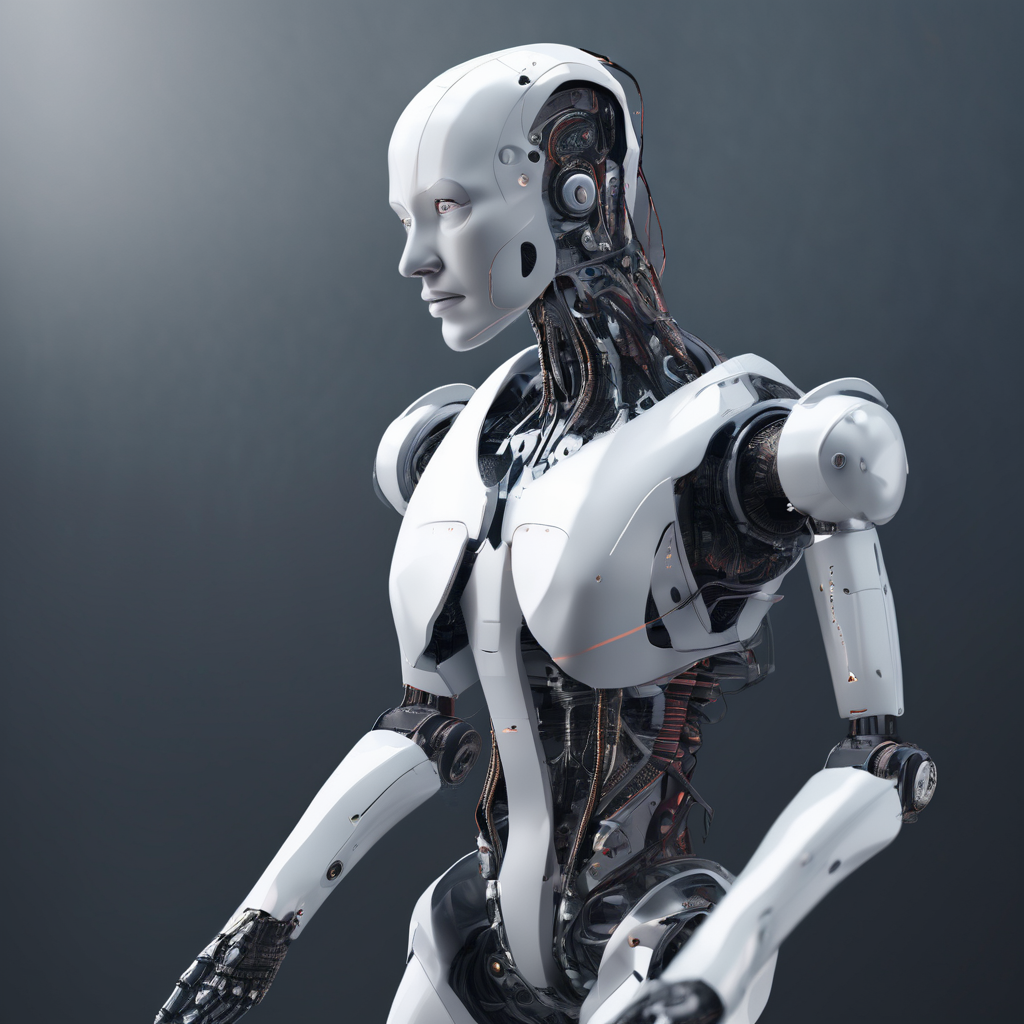The rise of artificial intelligence in our daily lives, and the concerns and controversy regarding the technology.
The technology of artificial intelligence (AI) was born in 1956 during the Dartmouth conference, where this term was borne. Up until the 21st century, AI focused on symbolic reasoning, rule-based systems, and practical applications for such a technology.
With the arrival of the 21st century, advancements in computational ability and computer memory were seen, which allowed for the further development of the technology to incorporate the fields of computer vision, natural language processing, and speech recognition.
AI has emerged as a transformative force, revolutionizing various industries and reshaping our everyday experiences. From healthcare to transportation, smart homes to education, AI is making significant advancements and becoming increasingly integrated into our daily lives. This article explores the diverse applications of AI in different sectors, highlighting its impact on industries and the potential benefits it offers.
Additionally, we delve into the challenges and considerations associated with the rise of AI, including privacy concerns, ethical considerations, job displacement, and the importance of building trust and acceptance. As AI continues to evolve, it is crucial to understand its implications and ensure responsible development and deployment for a positive and sustainable future.
In many of our various industrial sectors, AI plays a key role in the advancements and techniques utilized by these professions.
In healthcare, AI is revolutionizing diagnostics, drug discovery, and personalized medicine. New AI-based imagery techniques enable more accurate and efficient diagnoses, while virtual assistants provide personalized care and support for patients in dire need. Predictive analytics algorithms help healthcare providers identify patterns and make informed decisions for disease management and treatment.
AI also plays a big role in transportation, and is a key source of innovation and the invention of better and more reliable systems. AI powered self-driving cars have the potential to transform mobility by improving safety, reducing traffic congestion, and enhancing overall transportation efficiency. With ongoing advancements, autonomous vehicles are becoming more and more viable options for daily transport, and they are getting closer and closer to becoming a common sight on our roads.
Smart homes are becoming smarter with AI-powered virtual assistants such as Amazon Alexa and Google Assistant. AI algorithms learn user preferences and offer personalized recommendations, creating a seamless and convenient living experience. These voice-controlled systems are extremely practical and can automate various tasks, from controlling lights and appliances to managing security systems, making them more comfortable and convenient for use.
Education is also benefiting from AI’s capabilities, as intelligent tutoring systems and adaptive assessments leverage AI to personalize learning experiences for students, making learning more inclusive and efficient. These systems analyze individual learning patterns, identify knowledge gaps, and provide tailored instruction and support. AI also assists teachers by automating administrative tasks, allowing them to focus on delivering personalized education.
AI is transforming customer service through the addition of virtual assistants such as chatbots, which can provide instant responses 24/7, in addition to personalizing recommendations for individual customers to enhance the customer experience and satisfaction. From resolving queries to making purchase suggestions, AI-enabled customer service is revolutionizing the way businesses interact with their customers.
While AI brings numerous benefits, it also raises certain challenges and considerations that need to be addressed.
Privacy and security concerns arise as AI systems collect and analyze vast amounts of personal data, in order to personalize information for individual customers and users. Safeguarding this data and ensuring impenetrable privacy systems are crucial to maintaining user trust in the system and the protection of sensitive personal information.
In addition to privacy and security concerns, ethical considerations are paramount in AI development. Bias in algorithms, lack of transparency, and accountability pose significant ethical challenges, making it difficult to extract accurate information from AI systems. It is essential to ensure fairness and inclusivity in AI systems, as well as to establish guidelines and regulations to govern their deployment.
Job displacement is a concern as automation and AI technologies advance. While AI creates new job opportunities, certain roles may become obsolete, which may potentially lead to a spike in unemployment. Jobs that involve routine and repetitive elements, the manufacturing and delivery of goods, the entry and analysis of data, and customer support are the most at-risk jobs due to the introduction of AI. It is crucial to focus on upskilling and reskilling the workforce to adapt to the changing job market and ensure a smooth transition.
Building trust and acceptance of AI technologies is vital for their widespread adoption. Addressing concerns, providing transparent explanations of AI algorithms, and fostering public understanding are key to ensuring the responsible and ethical deployment of AI systems.
From healthcare to transportation, smart homes to education, AI is revolutionizing various sectors, offering immense potential for innovation and efficiency. Artificial intelligence has become an integral part of our lives, transforming industries and enhancing our everyday experiences. In the future, AI will likely be even more important in our lifestyles, and it is necessary that we tackle the concerns involved with its development.
Challenges such as privacy, ethics, job displacement, and trust must be addressed to fully realize the benefits of AI. By embracing responsible AI development and deployment, we can harness the power of AI for positive and sustainable change.
As AI continues to evolve, it is crucial to foster collaboration, transparency, and dialogue to shape its future trajectory and ensure its impact aligns with our societal values. With careful consideration and responsible practices, AI can truly revolutionize our world for the better.







Leave a Reply